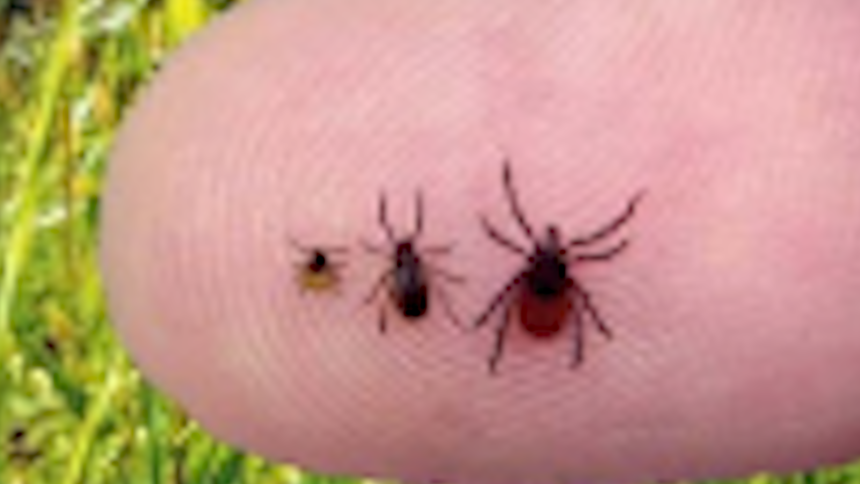Winter tick season starting in Santa Cruz County

SANTA CRUZ COUNTY, Calif. (KION) Winter is the season for the western black-legged tick, and Santa Cruz County officials are warning residents to be ready.
About 2% of those ticks are infected with bacteria that can cause Lyme disease, according to the county's tick-borne disease surveillance program, and 12 cases of Lyme disease have been recorded in Santa Cruz County this year.
To prevent being bitten by ticks, the Santa Cruz County Mosquito and Vector Control recommends:
- Wearing long pants and long-sleeved shirts
- Walking in the center of trails and avoiding brush and tree trunks
- Showering and checking for ticks after being outdoors
- Keeping pets on trails and checking them for ticks
- Using EPA-registered tick repellent, especially products with a 20% DEET concentration or higher
- Washing and drying clothes on high heat soon after being outside
If you do find a tick, removing it in less than 24 hours can help prevent Lyme disease and other tick-borne diseases. To remove a tick, the SCCMVC said to gently and firmly grab it close to the head and pull it straight out. It suggests using fine-pointed tweezers. The tick should be saved for identification, and it can be kept alive in a sealable back or container with a moist cotton ball in a refrigerator or cooler.
Those who remove ticks should wash their hands before and after and put antiseptic on the area around the bite. The SCCMVC said insecticides, Vaseline, lighted matches or gasoline should not be used to remove ticks.
Those who have been bitten by a tick or are concerned about Lyme disease should contact a healthcare provider. If the bite area becomes painful and red within 24 hours and does not expand, the SCCMVC said it may be an allergic reaction to the bite. Early symptoms of Lyme disease include flu-like symptoms and usually a painless rash that grows in size. The disease can be treated with antibiotics if caught early, but if left untreated, the SCCMVC said it could progress to arthritis or nervous system problems.
For more information, contact the SCCMVC at 831-454-2590.